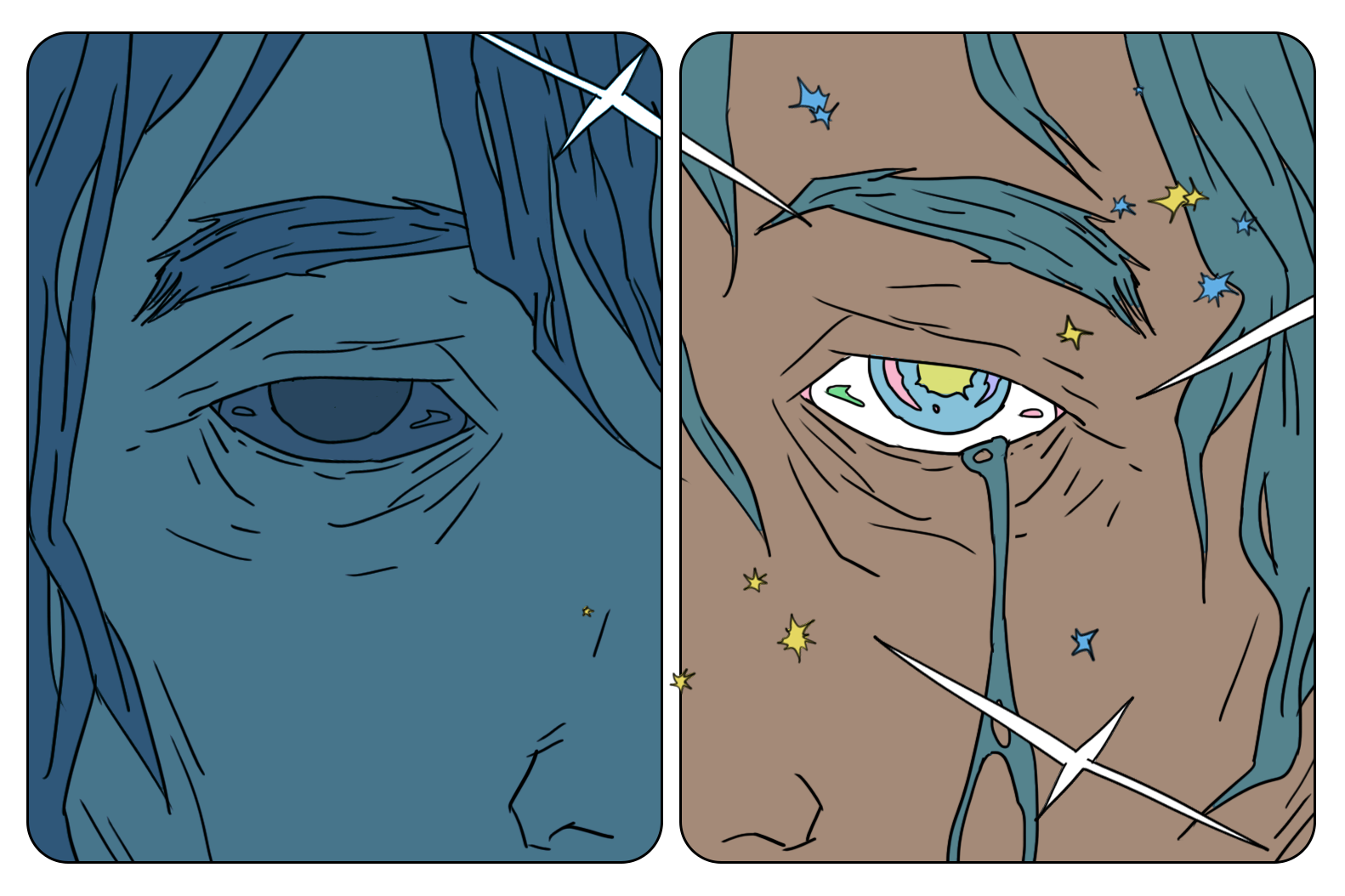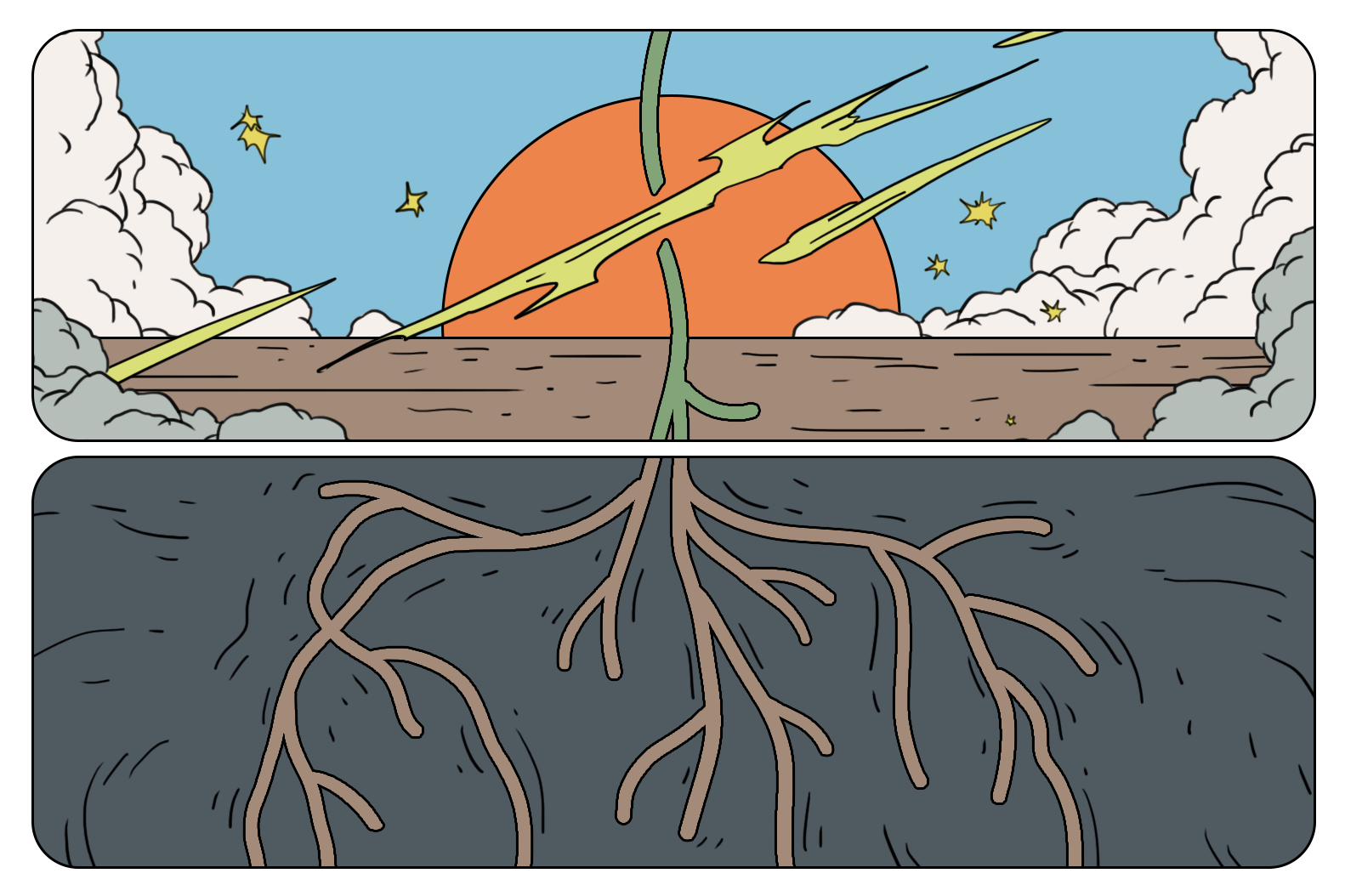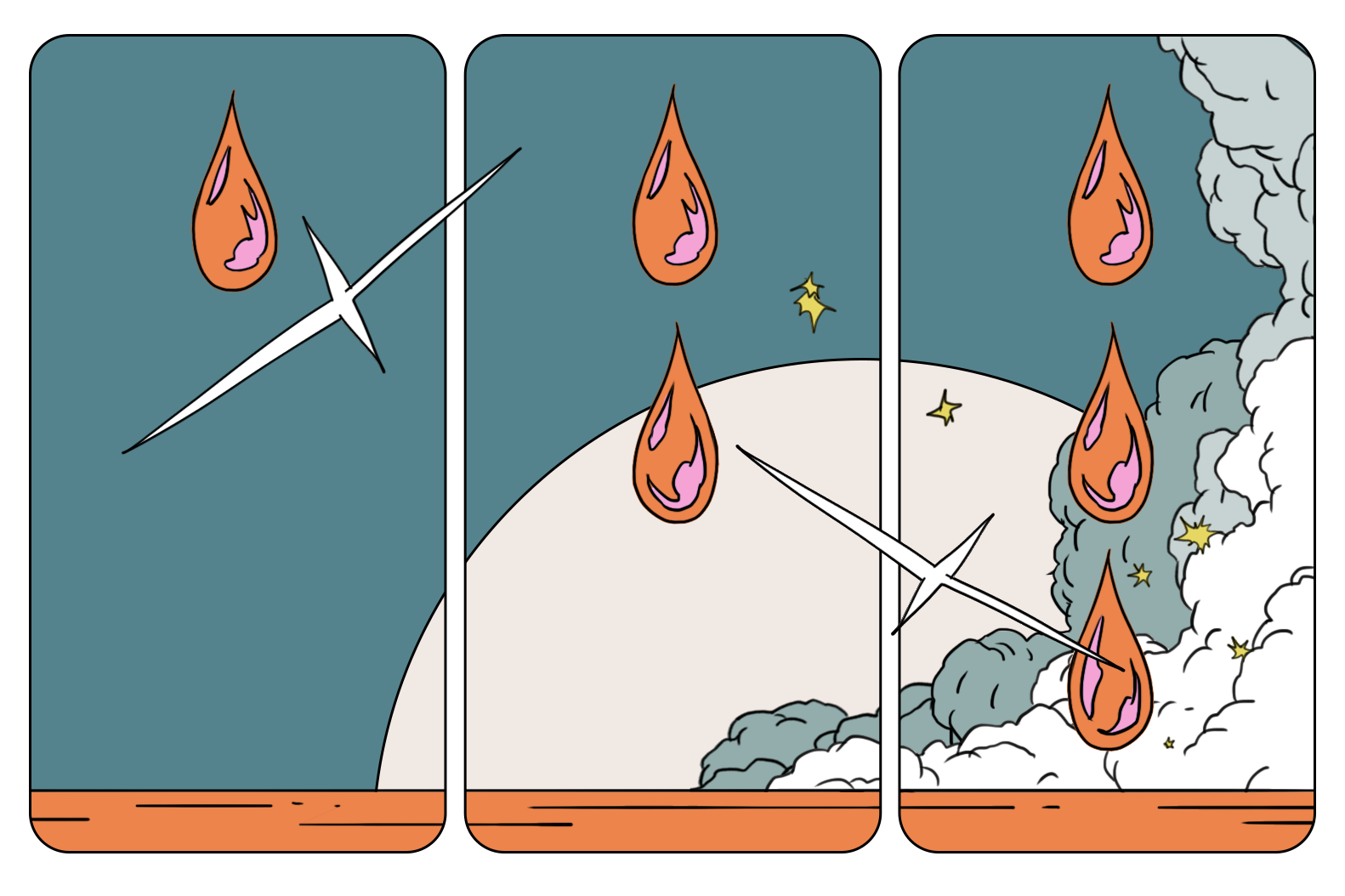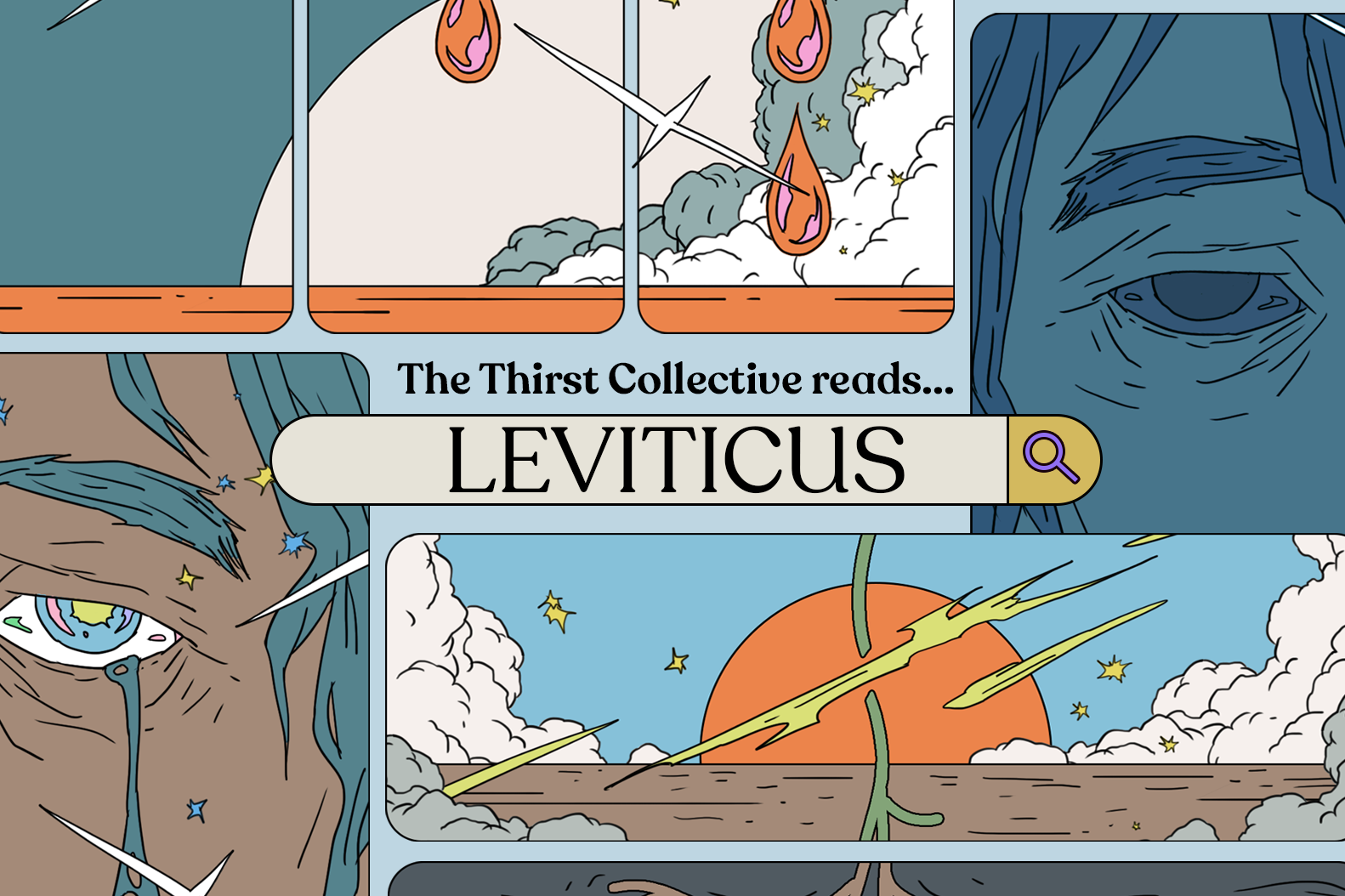Through 2024, every member of the Thirst Collective – Thir.st, Salt&Light, Stories of Hope, 还好吗 hhm.sg, Living Room, Collective Studio – has committed to reading the Bible from cover to cover.
We thought it’d be cool to pick out reflections and insights from our team’s readings to share with you. This month’s book? Leviticus!
Lev 1-3: Relentless pursuit
Christine, Salt&Light
This precursor of the work of Jesus so beautifully demonstrates the effort God makes to bridge the gap that sin created.
The whole book of Leviticus is all about God reaching man.
The slaughter, the burning and the sacrifices point to the fact that nothing is enough to bring man to God but Jesus.
I am moved by a God who relentlessly pursues me.
Lev 4-6: “Modern culture” or sin?
Joshua, Collective Studio
Reading all the different nuances of burning and preparing the offerings gives insight into how meticulously the Lord views everything we do.
Specifically for sin offerings, it is spelt out that there are differences between unintentional and intentional sin. Even in intentional sins, there are varying degrees depending on what is committed and who committed it.
I view this in contrast to the new covenant of grace, we now live under. I’m thankful for Jesus’ blood that covers all. Yet, it’s easy to generalise our different sins into one nice package without regard for their varying degrees and levels of destruction in our lives.
May the Lord help me see sin clearly, in varying degrees and severity. May I not be blind to the little things that the Lord may call sin, but could be easily packaged into what we may call modern culture.

Lev 9:24: The glory of God
Peck, Salt&Light
“And fire came out from before the Lord and consumed the burnt offering and the pieces of fat on the altar, and when all the people saw it, they shouted and fell on their faces.” (Leviticus 9:24, ESV)
The people fell face down in worship when they saw His glory. The holiness of God demands that response. I am guilty of taking His goodness for granted and not standing enough in awe of His holiness.
Lev 14: The root of sin
Christina, Thir.st
I was personally reminded of the time when my neighbour from upstairs damaged the waterproof sealing when changing out their toilet floor tiles.
My family ended up battling a persistent severe mould problem. It made me so exasperated because no matter what you do, it just never goes away completely.
It was to the point that my mum got so sick of the cleaning that she wanted to sell the house and leave the toilet problem behind.
In the end, we had to redo the waterproof sealing, shave off and re-plaster the walls. It required extensive repair work that standard surface cleaning wouldn’t have sufficed.
The same goes for sin, I guess. You have to tackle it at the root, not just at the surface – because if you only tackle the presenting symptoms, it will always come back.

Lev 18:27-28: Are we accountable?
Zemin, 还好吗 hhm.sg
“All these detestable activities are practiced by the people of the land where I am taking you, and this is how the land has become defiled. So do not defile the land and give it a reason to vomit you out, as it will vomit out the people who live there now.” (Leviticus 18:27-28, NLT)
I felt reminded that even though we are already saved by Christ, we have to also learn to watch ourselves in the way we live.
Being human means there is a tendency to fall, so this verse is a reminder that wherever we are being sent to do the work for God, we must watch ourselves and have accountability in it to be in alignment with God. Or else, there is no point in doing the work of God.
Lev 19-21: In full control
Weiming, Thir.st
Reading till this point in Leviticus makes me think that God is really creative in the way He dealt with sin in the Old Testament (even as grave as things were).
Almost no two offerings or atonement were done in the same way. Yet at the same time, it reminds me that God truly does know what He is doing, even when it might have seemed like it doesn’t make sense.
Lev 21:18: The God who restores
Nicole, Thir.st
“For no man who has a defect shall approach [God’s altar as a priest]: no man who is blind or lame, or who has a disfigured face, or any deformed limb,” (Leviticus 21:18, AMP)
Was just reminded that in the New Testament, God Himself came to the blind man to restore his eyes and the lame man who He called to walk again.
From not being able to go near God because of the fallenness of mankind and the consequence of sin, to God personally coming down to earth in the form of flesh to bring us back to Him…
He brought heaven down to earth, to us, through Himself.

Lev 25: Just passing by
Gracia, Salt&Light
Just as how God instituted the idea of a jubilee year as a reset, the people would also be reminded that their ownership over land and people is temporary. No point amassing land or wealth if it was just gonna reset after 49 years.
Though we don’t have to practise the year of jubilee as they did, I think the concept of holding possessions loosely is a good one to be reminded of. Sometimes we can get caught up in building our own homes or treasures on earth and forget that this world is not our home. We are just passing by.
Lev 25-27: Even when we can’t see it
Isaac, Collective Studio
In busy Singapore, the concept of rest can be sometimes hard to be perceived as good.
Resting from work, even in ministry, can be a reminder to ourselves that God is working even when we are not!
The success of our achievements depends much more on God’s blessing of our work than on us putting in a 7-day work week.
When we get consumed in our work it’s easy to forget that.
- What stood out to you while reading Leviticus?
- How can you apply this biblical truth or principle to your daily life?









